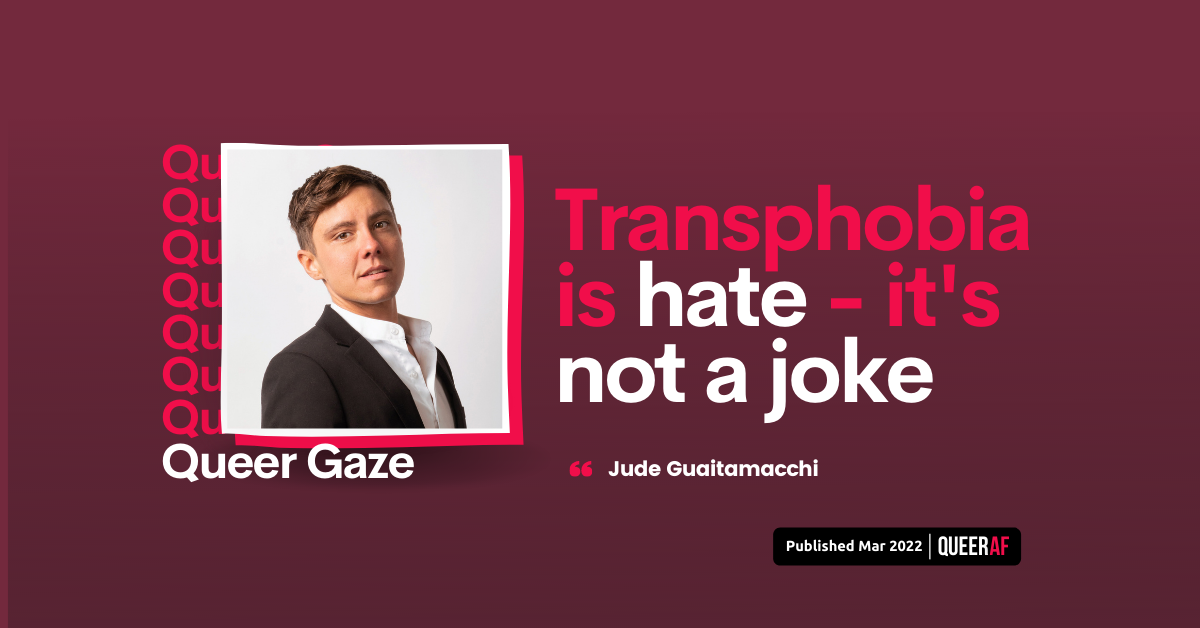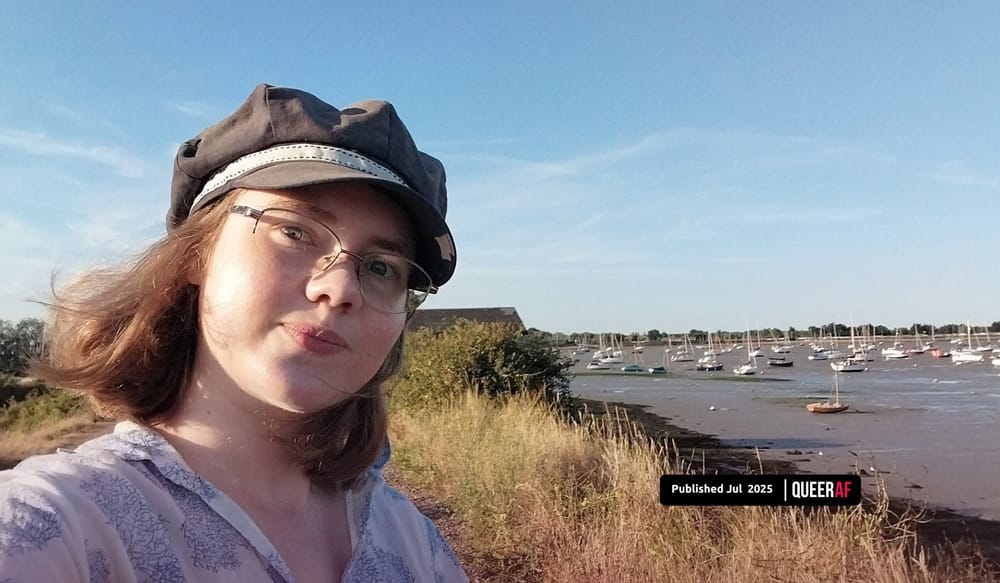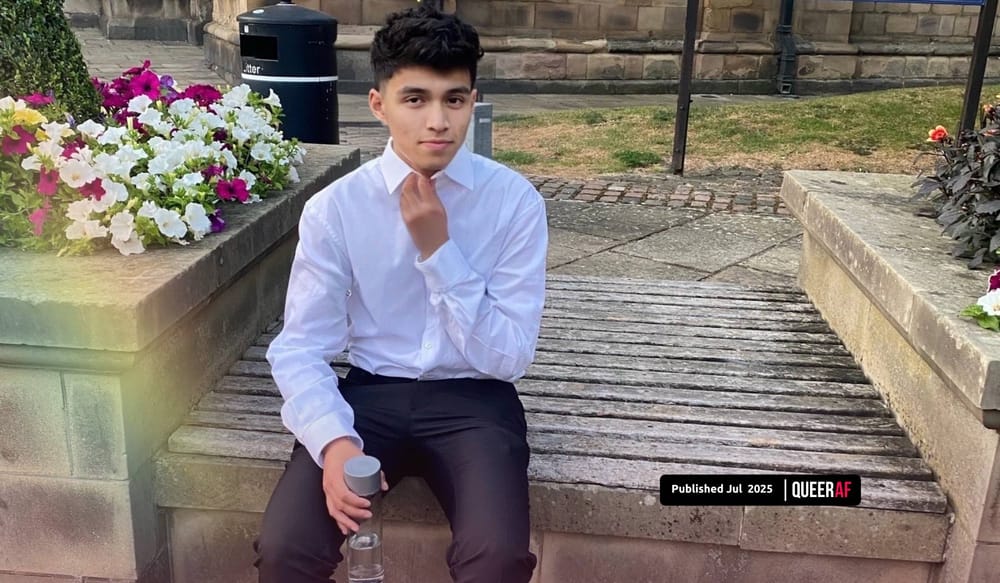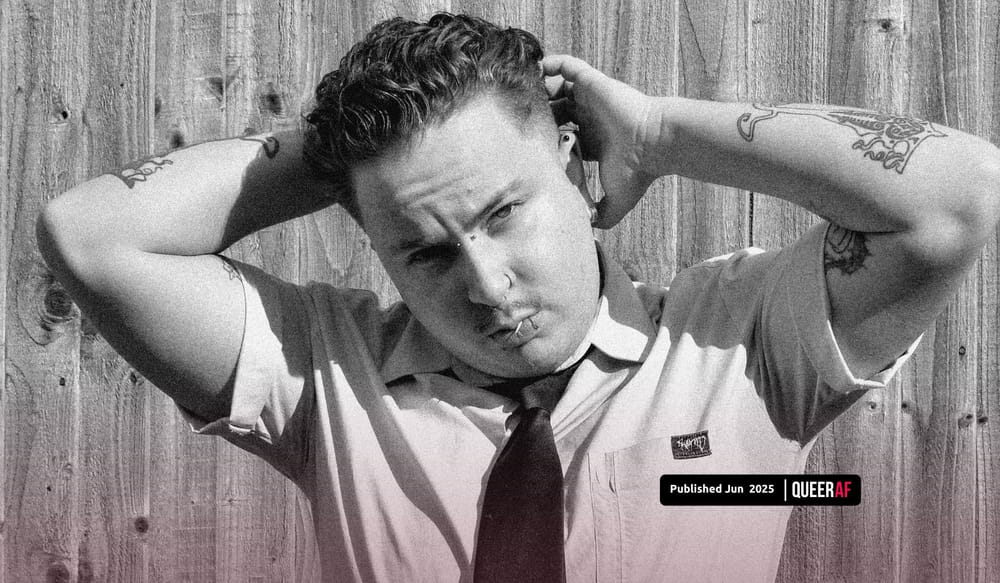
What started as an innocent date night ended on a completely unexpected note.
I went to a comedy show, my first that wasn’t queer, since coming out over four years ago. I was hoping for some light relief.
And look, I’m no stranger to comedy. I spent the best part of my early twenties working in entertainment TV, at “Live at The Apollo” and “Alan Carr: Chatty Man”.
Yet I had never felt as nervous as I did that night. From the moment I set foot in the venue to sit in the second row, I began nervously pulling apart the thread from my scarf.
I stared at the floor, hoping to go unnoticed as anxiety ran through my mind. I was terrified of being exposed and ridiculed in front of a seemingly cis-het audience.
My partner reassured me by clutching my hand and placing it in her lap. I did my best to ease up and enjoy the show. But my fears came true.
A joke about trans people. The devastating roar of laughter. As I got up to leave, the ‘T’ word was then hurled toward me.
Raising awareness of this incident online has encouraged me. I’ve thankfully had overwhelming support from trans allies. But it also saw all kinds of people defend the comedian’s right to tell the joke.
Sound familiar? It’s not long since the Dave Chappelle Netflix special that sparked a backlash of protests by trans activists and employees.
Indeed, the piece by Ricky Gervais that's been described as an "anti-trans garbage fire". It's seen comedians like Nish Kumar and James Acaster call this kind of comedy lazy.
Still, Chapelle argued at the time, "content on screen doesn't directly translate to real-world harm”. And yet, transphobic hate crime has quadrupled since 2015 in the UK alone.
Normalising transphobia undoubtedly perpetuates discrimination and is spilling out onto the streets in the form of violent attacks.
As a friend recently told me, the rules of comedy should be simple: ‘punch up, not down.’ Indeed, more and more comedians are considering ‘punching down’ to be lazy and outdated.
The following weekend I attended Zoe Lyon’s ‘Bent Double’, a monthly queer-friendly comedy night in Brighton. The lineup of comics had me howling.
I felt at ease and left feeling better than I did before it started. And what was it proof of? You don’t have to be cruel to be funny.
This article was just one part of our weekly newsletter that summarises, understands and explains the queer news of the week. Support queer creatives by signing up and sharing this piece.
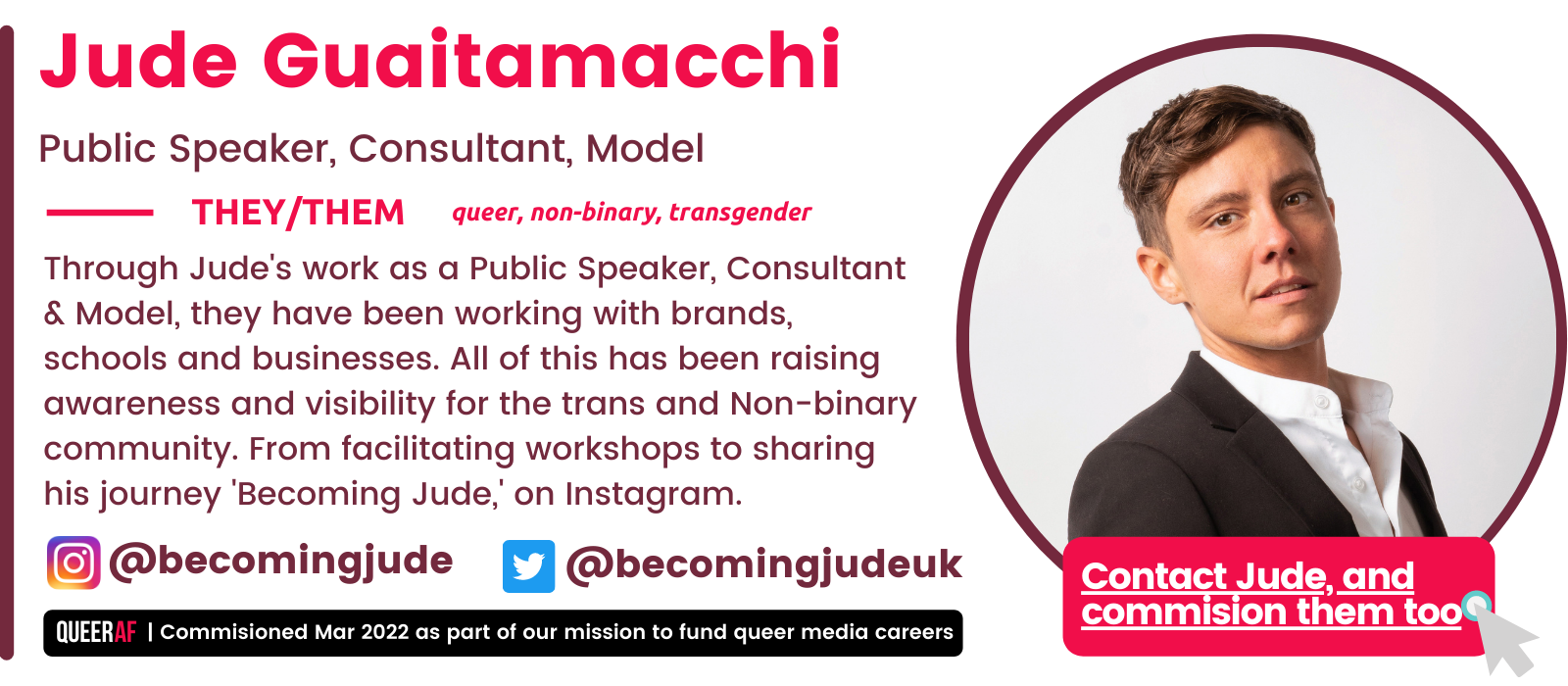
What is the Queer Gaze?
We are an independent platform launching the careers of emerging and LGBTQIA+ creatives driven by people, not advertisers.
The Queer Gaze is our landmark scheme commissioning, mentoring and running skill sessions with queer writers.
This article was just one part of our free weekly newsletter that helps you understand the queer headlines and stay on top of the latest LGBTQIA+ content - all while we support queer creatives.
Hundreds of people trust us to give them everything they need to navigate the ever-changing queer world, every Saturday morning 🏳️🌈 It's written by Jamie Wareham, and a different queer creative each week.
We rely on members who directly fund this scheme. Become a QueerAF member to directly commission queer creatives, tell us what to create next.
We are QueerAF, and so are you.


